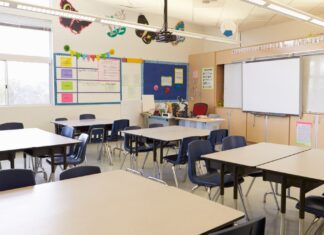
Summer immersion in books can be a boon to kids
When should children begin their summer reading?
How about yesterday? According to a blog from the children’s publisher Scholastic, 96% of educators agree providing year-round access to books at home is important for student achievement. And 94% of parents agree summer reading will help their child during the school year.
Summer programs abound in South Jersey. The Mullica Hill library’s annual sessions begin June 24 for all ages. Participants will not only be able to track their reading progress, but also earn weekly prizes. Camden County libraries will host summer reading programs beginning June 26 in three areas: early readers, elementary readers and middle- and high school readers.
Summer sessions are crucial not only for reading achievement but to teach kids other skills as well, according to Scholastic. Eighty-three-percent of educators say reading helps students understand people who are different than they are; 81% maintain it helps develop empathy; and 81% believe it enables kids to see themselves in characters and stories, especially if they can make their own choices about what to read.
But the damage from COVID is still being felt. It caused children to experience shortfalls in reading in every demographic group, but especially for Blacks and Hispanics and those with disabilities, according to the New York Times.
Results of a reading assessment reported in a 2021 study by the Stanford Graduate School of Education showed that among first through fourth graders, the development of oral reading fluency – meaning the ability to quickly and accurately read aloud – largely stopped in spring 2020 after school closures mandated by the pandemic. Gains were stronger that fall, but not enough to recoup the losses.
“Reading is kind of a gateway to the development of academic skills across all disciplines,” said Ben Domingue, an assistant professor at Stanford GSE and an author of the study. “It’s a key that opens all of the doors. If a kid can’t read effectively by third grade or so, they’re unlikely to be able to access content in their other courses.”
To help that along are programs that can also help prevent what’s known in the teaching industry as the summer slide – or dip – in learning, according to the readingeggs.com website.
Studies suggest that children who read more have better fluency, vocabulary and comprehension, the site says.
And summer reading doesn’t just happen in the library. It can be a matter of simply tracking the number of minutes read at home or elsewhere per day to specific summer reading lists, especially if kids have a say in what titles they read, according to Scholastic.
Those can include all formats, including graphic novels and comic books.
Just reading words in a book can grow a child’s vocabulary by leaps and bounds, according to teachhub.com. A student reading just 20 minutes a day at home will hear on average 1.8 million words per year.
That’s a good reason not to skip the 92 days of summer.









